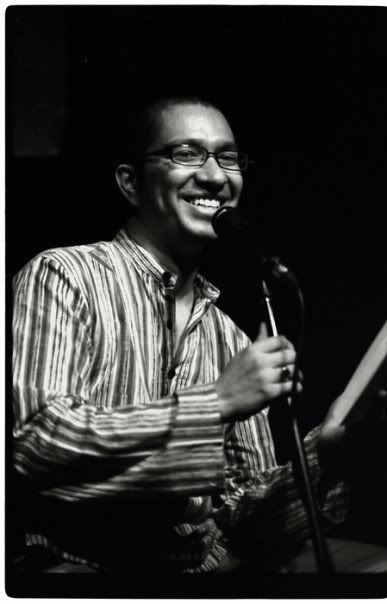
It's a truth universally acknowledged that watching documentaries used to be considered one of the least exciting things you could do with your clothes on. So I especially remember the very first time I enjoyed one.
This especial remembrance does not, however, extend to recalling the exact date I saw it. But it must have been in the early 1990s at the Australian High Commission in KL. The title was (and still is)
Cane Toads: An Unnatural History. These creatures were imported to north-eastern Australia from Hawaii to combat pests in the cane-fields, but not only did they fail to do so, they turned out to be an even bigger menace themselves. They multiplied at an alarming rate, caused in large part by their nasty habit of humping everything in sight. They had no natural predators due to their poisonous skin ... but this same skin when licked can produce an effect close to LSD, as a sombre testimony by a former addict (complete with privacy-ensuring blacked-out face) reveals.
It's 47 minutes long but contains more joy, absurdity and pathos than any CGI-fed 3-hour extravaganza. The Australians interviewed are all very serious, which of course ups the hilarity quotient ever more. (There's no unsexier English-speaking accent than the Australian one, just as there's no sexier accent than the Irish). Among the people I remember are a girl who dresses up cane toads in dresses; and a man who makes it a point to run over as many of these creatures as he can, with the requisite sound effects that are not for PETA or the prickly.
I love how the documentary had such affection for its interviewees, even the really weird ones, without being condescending. Contrast this with the way Michael Moore gets laughs out of embarrassing the poor secretaries, receptionists and security guards of CEOs he has a beef with; you know, those workers who make less in a year than our blue-collar hero does in a braying day. Along the way, and without undue signposting about Serious Issues, it also becomes an analogy about Australian attitudes to immigration. And their resilience, as when the cane toads foster a perverse but deeply felt civic pride: Sure they're ugly and useless, but they're
ours!Movie-watching is a community experience several times over. The primary act of sharing comes from being in the dark with a bunch of (mainly) strangers. Then there's the discussion with your own friends afterwards. And then comes the point, years later, when you talk about a movie to someone who, it turns out, had also seen it somehow - and felt the same way about it. The connection is instantaneous and multi-levelled. I remember mentioning
Cane Toads: An Unnatural History to a friend during supper just last year, and he immediately started quoting lines from it, laughing so hard that he almost chocked, literally almost falling off his chair. People started to stare.
Now that's entertainment.





